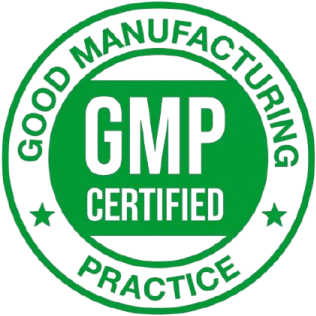
Introduction to Third-Party Pharmaceutical Manufacturing
Third-party pharmaceutical manufacturing has become an essential strategy for many companies in the industry. This model involves outsourcing the production of pharmaceutical products to specialized manufacturers, enabling companies to focus on core competencies such as research and development, marketing, and sales.
Market Insights and Industry Growth
The global pharmaceutical contract manufacturing market was valued at approximately $117.3 billion in 2021 and is projected to reach $171.2 billion by 2026, growing at a CAGR of 7.8%. The increasing demand for generic drugs, complex biologics, and cost efficiency in production are driving this growth.
Key Considerations for Successful Third-Party Manufacturing
1. Selecting a Reliable Manufacturer
- Choosing the right third-party manufacturer is crucial. Factors to consider include:
- Reputation & Experience: Manufacturers with at least 10 years of experience in contract manufacturing are generally more reliable.
- Quality Control Measures: Ensure adherence to Good Manufacturing Practices (GMP) and ISO certifications.
- Regulatory Compliance: The manufacturer must comply with FDA, EMA, WHO, and local health authorities.
- Production Capabilities: Ability to handle batch sizes, product types, and innovative technologies.
2. Establishing Clear Agreements
- A well-defined contract is essential to outline manufacturing terms, including:
- Production specifications (e.g., dosage forms, active pharmaceutical ingredients)
- Quality standards and inspection processes
- Timelines and delivery schedules
- Intellectual property rights (to safeguard proprietary formulations and technologies)
3. Maintaining Quality Control
- Rigorous quality control measures ensure product safety and efficacy:
- Regular GMP inspections and compliance audits.
- Comprehensive batch testing and stability studies.
- Implementation of real-time monitoring technologies to track production quality.
- A study published in the Journal of Pharmaceutical Sciences and Research found that companies with stringent third-party quality control measures experience 35% fewer product recalls.
4. Effective Communication and Collaboration
- Open and transparent communication between the company and the third-party manufacturer is critical for success.
- Regular progress updates, meetings, and detailed reporting mechanisms ensure alignment.
- Utilizing digital supply chain solutions improves coordination, reducing lead times by 10–20%, according to a McKinsey report.
5. Regulatory Compliance
- Ensuring that the third-party manufacturer meets all regulatory requirements is essential to avoid legal and compliance risks.
- GMP-compliant facilities have 50% fewer regulatory issues, as per a study by the International Society for Pharmaceutical Engineering (ISPE).
- Compliance with evolving regulations ensures market accessibility and product reliability.
Key Benefits of Third-Party Pharmaceutical Manufacturing
1. Cost Reduction
- Outsourcing production significantly reduces capital expenditures related to manufacturing facilities, equipment, and personnel.
- Companies can save 30–50% on production costs by outsourcing to contract manufacturers in regions with lower labor and infrastructure costs, such as India and China.
- Reduced waste and optimized resource allocation contribute to cost-effectiveness.
2. Enhanced Efficiency
- Third-party manufacturers often possess specialized expertise and state-of-the-art facilities, leading to higher efficiency and improved production timelines.
- Modern contract manufacturers use advanced automation and digital tracking to streamline production, improving batch quality and reducing errors.
- A study by the International Journal of Pharmaceutical Sciences found that companies leveraging third-party manufacturing experience a 15–25% reduction in time-to-market compared to in-house production.
3. Access to Expertise
- Companies can leverage the specialized knowledge of third-party manufacturers in formulation development, quality control, and regulatory compliance.
- Contract manufacturers invest in continuous R&D, ensuring products comply with the latest pharmaceutical standards and regulations.
- A report by Grand View Research highlights that contract manufacturers allocate 10–15% of their revenue towards R&D, enhancing product innovation and quality.
4. Scalability and Flexibility
- Third-party manufacturing provides flexibility in production volumes, allowing companies to scale up or down based on market demand.
- According to a Deloitte report, businesses using contract manufacturing experience 20–30% faster production scaling capabilities compared to in-house facilities.
- This is especially beneficial for seasonal drugs, specialty formulations, and emergency response scenarios (e.g., COVID-19 vaccine production).
5. Focus on Core Competencies
- By outsourcing manufacturing, companies can prioritize research, marketing, and sales to drive innovation and business growth.
- The pharmaceutical industry spends approximately 16–20% of its total revenue on R&D, which becomes more effective when manufacturing is outsourced.
- Focused investment in new drug discoveries enhances overall business competitiveness.
Why Choose Sanctus Global Formulation Ltd for Third-Party Pharmaceutical Manufacturing?
Sanctus Global Formulation Ltd is a trusted leader in third-party pharmaceutical manufacturing, offering cutting-edge solutions tailored to meet the dynamic needs of pharmaceutical companies worldwide. Here’s why they stand out:
- State-of-the-Art Manufacturing Facilities: Equipped with GMP-certified and FDA-approved production lines to ensure the highest standards of quality and safety.
- Comprehensive Product Portfolio: Expertise in developing a wide range of formulations, including tablets, capsules, injectables, ointments, and specialty drugs.
- Regulatory Compliance Excellence: Ensures strict adherence to WHO, EMA, and local regulatory requirements for seamless global distribution.
- Advanced Research and Development: Dedicated R&D team focused on innovation, efficiency, and breakthrough formulations.
- Customizable Solutions: Offers flexible production capabilities to cater to specific client requirements, ensuring scalability and cost-efficiency.
How to reach Sanctus Global Formulations Ltd.?
Corporate Office
- SCO 56-57, Level – 3, Sector – 17 D, Near GPO Chandigarh – 160017
- +91-9914562999, +91-01725062700
- +91- 01725062800
Manufacturing Unit
- Khasra No 587/588 Village Kunjhal, PO-Barotiwala, Tehsil-Baddi Distt. Solan Himachal Pradesh 174103
- +91-01725062700
- info@sanctusglobal.com
Conclusion
Third-party pharmaceutical manufacturing offers numerous advantages for companies aiming to optimize operations, reduce costs, and accelerate time-to-market. By carefully selecting a reliable manufacturer, establishing strong partnerships, and ensuring regulatory compliance, companies can leverage the benefits of third-party manufacturing to achieve their business objectives.
Partnering with Sanctus Global Formulation Ltd ensures a strategic edge in pharmaceutical outsourcing, allowing businesses to focus on innovation, growth, and market expansion.


